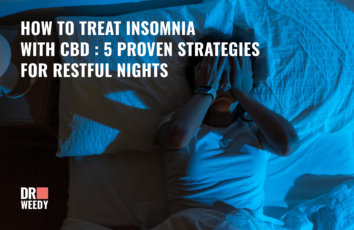Is Cannabis Good or Bad for Sleep?

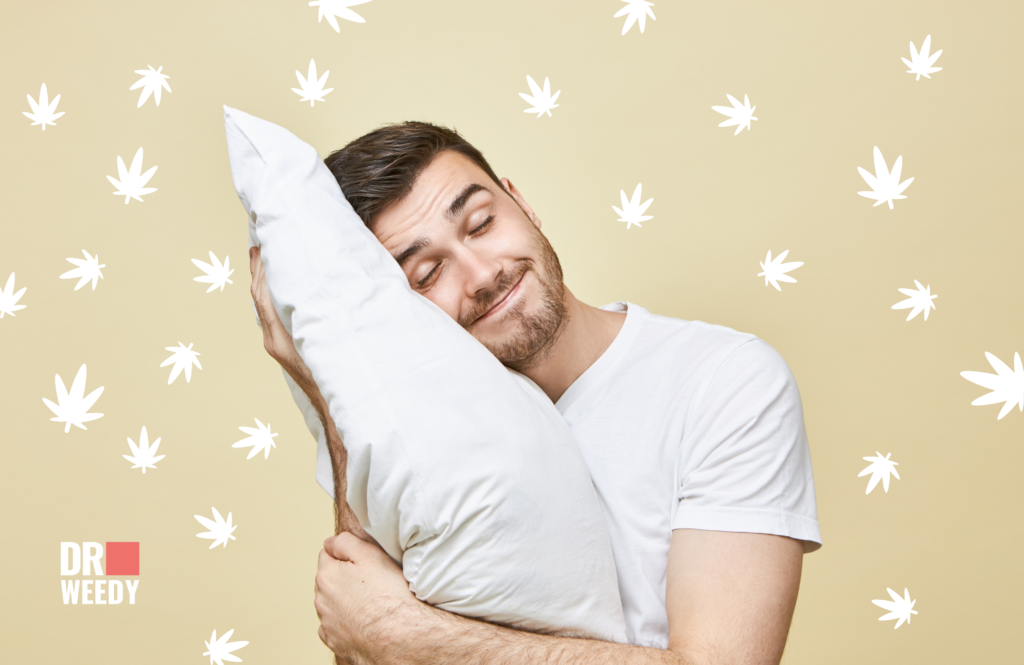
Cannabis, a plant with a rich history of medicinal and recreational use, has become a subject of interest in the realm of sleep. With its potential to promote relaxation and sedation, many individuals wonder if cannabis is a viable sleep aid. In this article, we will explore the effects of cannabis on sleep, its potential benefits, drawbacks, and the key considerations to keep in mind.
Cannabis: A Brief Understanding
Cannabis comes from different species of the Cannabis plant, primarily Cannabis sativa and Cannabis indica. The former is known for its uplifting effects, while the latter is associated with relaxation and sedation, making it a popular choice for promoting sleep. Additionally, a less common species called Cannabis ruderalis has emerged, which contains lower levels of THC and is primarily used for medicinal marijuana. Furthermore, hybrid strains have been developed, combining characteristics from both major species.
How Does Cannabis Work as a Sleep Aid?
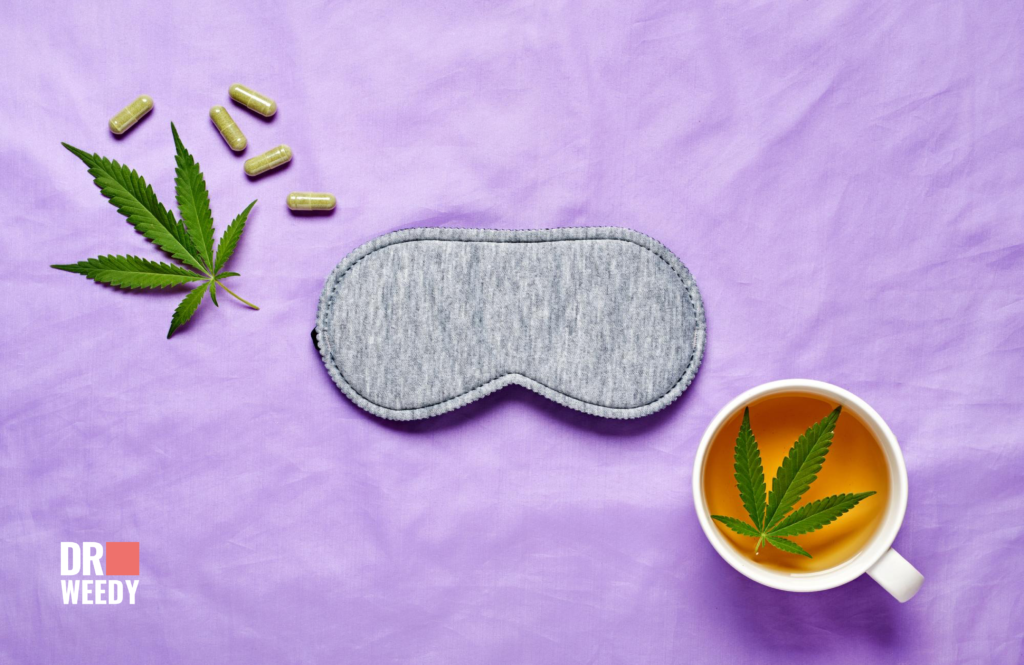
The sleep-promoting effects of cannabinoids are believed to be linked to their interactions with cannabinoid receptors in the brain. When cannabinoids, like THC and CBD, bind to these receptors, they stimulate the release of sleep-promoting adenosine and suppress the brain’s arousal system. These combined effects can induce feelings of sedation or sleepiness, making cannabis a potential option for those seeking sleep aid.
The Benefits of Cannabis for Sleep
- Deeper Sleep: Many users report that cannabis helps them achieve a deeper level of sleep, leading to a more rested feeling upon waking. This benefit is largely associated with the relaxation properties of certain cannabis strains, particularly those containing higher levels of indica.
- Reduced Nighttime Awakenings: Cannabis may also assist in reducing nighttime awakenings, a common symptom of insomnia. Individuals who struggle with frequent awakenings throughout the night might find relief in cannabis’s sleep-promoting properties.
- Beneficial for PTSD: Cannabis, particularly synthetic forms of THC, has shown potential benefits for individuals with Post-Traumatic Stress Disorder (PTSD). It may reduce PTSD-related nightmares and improve overall sleep quality for those dealing with the condition.
The Downside of Cannabis for Sleep
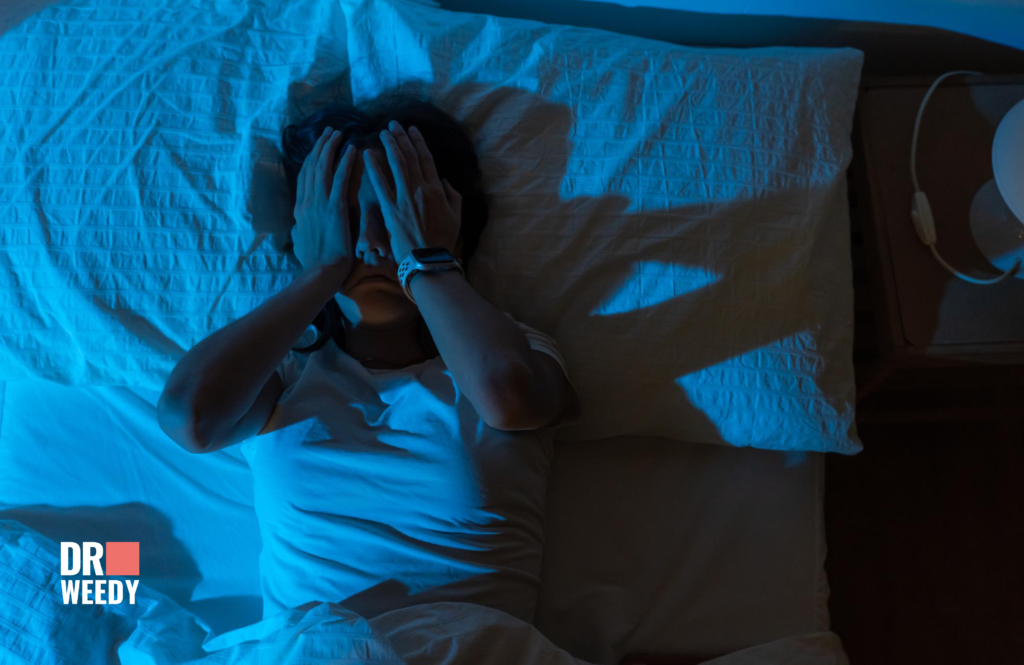
- Disruption of REM Sleep: One notable downside of using cannabis as a sleep aid is its impact on REM sleep, the stage associated with dreaming. Research indicates that THC can decrease the amount of time spent in REM sleep, which may affect the processing of emotions and formation of new memories.
- Long-Term Use and Tolerance: While cannabis may help with falling asleep faster in the short term, long-term use can lead to the development of tolerance. This means that regular users may need higher doses to achieve the same sleep-inducing effects, potentially impacting its overall effectiveness as a sleep aid.
- Potential Health-Related Side Effects: Long-term cannabis use may have health-related side effects, including reduced gray matter volume in the brain and an increased risk of chronic bronchitis when smoked. Health experts also advise against using cannabis while pregnant or breastfeeding due to potential risks to the developing fetus or newborn.
Can Cannabis Treat Sleep Disorders?
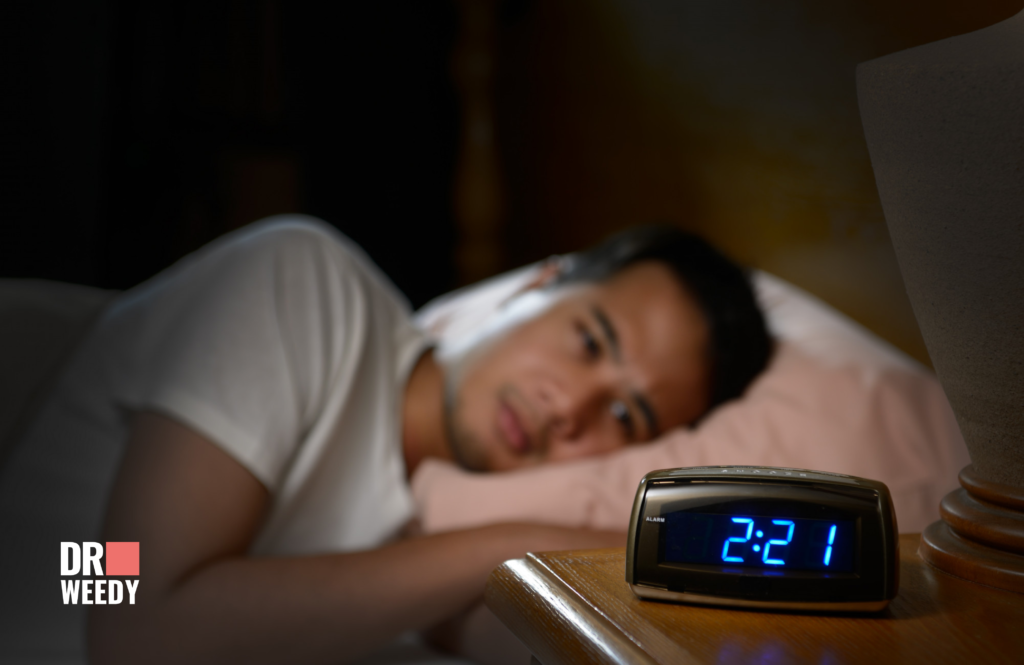
There are several studies indicating that cannabis can help induce sleep, especially in people with sleep disorders like insomnia and sleep apnea. However, the results often vary based on factors such as dosage and the specific cannabinoid used.
On the other hand, some studies suggest that long-term cannabis use can actually degrade sleep quality. Again, more research is needed to fully understand these effects.
Cannabis Tea for Sleep
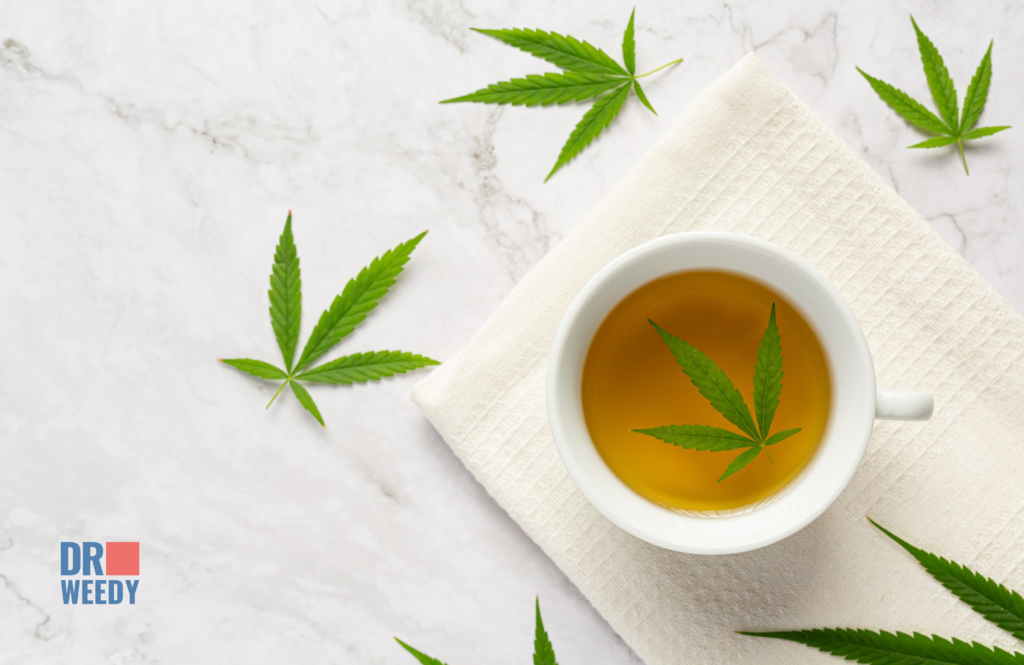
A popular way to consume cannabis for sleep aid is through cannabis-infused tea. Cannabis tea offers a gentle and gradual onset of effects, making it a popular choice for those looking for a milder experience before bedtime. To prepare cannabis tea for sleep, the cannabis buds or leaves are typically steeped in hot water along with a fat source, like coconut oil or butter, to aid in the extraction of cannabinoids.
The calming properties of the tea, combined with the potential sleep-promoting effects of cannabis, can create a soothing and relaxing experience that may help individuals unwind before bedtime. However, it’s essential to be mindful of the dosage and potency of the tea, as it can vary depending on the strain and preparation method. As with any cannabis product, moderation is key to avoiding potential negative side effects and to ensure a positive and restful sleep experience.
Best Cannabis Strains for Sleep
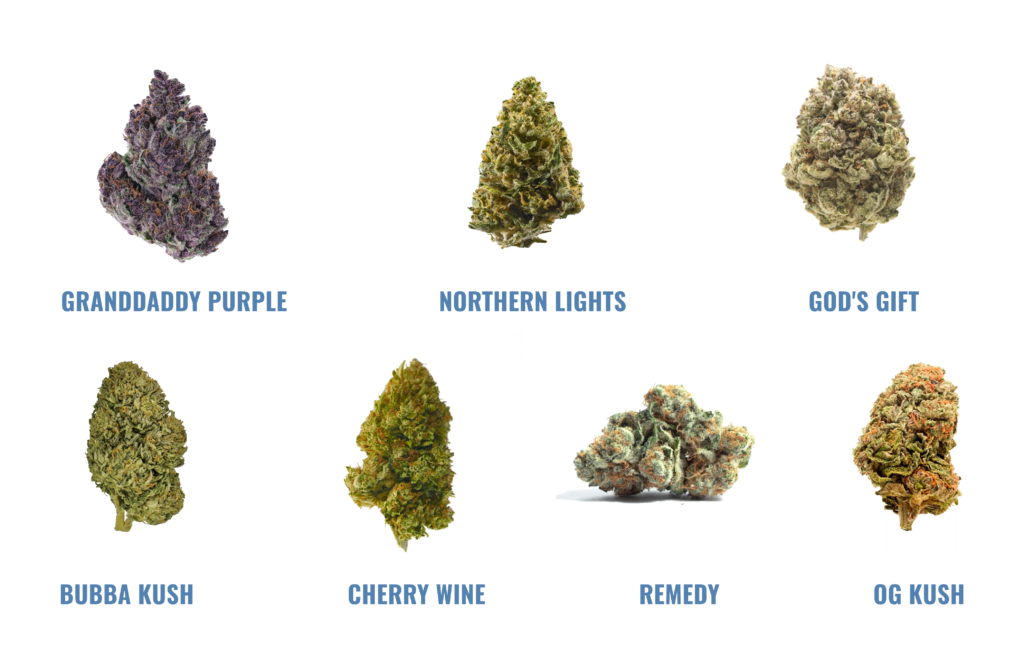
When considering cannabis as a sleep aid, choosing the right strain is crucial to achieve the desired sleep-promoting effects. Here are some of the best cannabis strains known for their potential to improve sleep:
- Granddaddy Purple: This popular indica strain is revered for its potent sedative properties, making it an excellent choice for promoting relaxation and inducing sleep. It often delivers a calming body high, easing muscle tension and stress.
- Northern Lights: Another well-known indica strain, Northern Lights, is cherished for its ability to bring on deep relaxation and sedation. It is often recommended for those struggling with insomnia and restless nights.
- God’s Gift: As the name suggests, God’s Gift is a powerful indica strain that provides a sense of tranquility and euphoria, paving the way for a peaceful night’s sleep.
- Bubba Kush: This indica strain is prized for its ability to induce a heavy body high, which can lead to deep relaxation and drowsiness, making it a favored choice for bedtime use.
- Cherry Wine: For those seeking a more balanced option, Cherry Wine is a CBD-rich strain that offers relaxation without the intense psychoactive effects of THC. It may help calm the mind and promote a sense of serenity before sleep.
- Remedy: Another high-CBD strain, Remedy, is valued for its potential to alleviate anxiety and promote relaxation, making it an appealing choice for those seeking better sleep.
- OG Kush: While OG Kush is a hybrid strain, it is well-regarded for its strong sedative properties and may be beneficial for individuals looking to unwind and drift off to sleep.
Safety and Precautions
Potential Side Effects
Possible side effects of cannabis include dry mouth, increased heart rate, and changes in appetite. It’s important to start with a low dose and adjust gradually.
Safe Usage Guidelines
Always use cannabis responsibly. Avoid combining it with alcohol or other substances that depress the central nervous system.
Consulting Healthcare Professionals
Before using cannabis for sleep, it’s important to consult with a healthcare provider. They can provide guidance based on your personal health history and needs.
Conclusion
In conclusion, cannabis can have both positive and negative effects on sleep, depending on factors such as the strain, dosage, and individual differences. While it may offer short-term benefits, long-term use should be approached with caution due to potential tolerance development and health-related side effects.

























